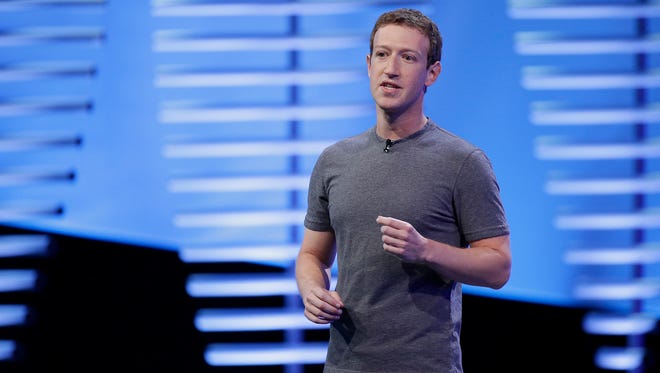Facebook removes human-written descriptions on Trending topics

SAN FRANCISCO - Facebook removed human editing from its Trending news topics feature Friday, part of the fallout from charges of anti-conservative political bias leveled at the social networking site back in May.
Gone are the short hand-written descriptions of Trending topics, to be replaced by even shorter algorithm-generated blurbs about popular topics circulating on the platform, according to a blog post.

The change will have no impact on the stories chosen to be featured on Trending. Facebook said it uses an algorithm pick the top stories, whose factors include a user’s “Liked” pages, what previous topics they interacted with and stories trending across the platform.
The move to automate the human-curation element may also have eliminated humans. Sources told Quartz that Facebook had fired between 15 and 18 workers contracted through a third party to work on the feature, adding that Trending team staffers would now consist entirely of engineers ensuring that topics surfaced by the algorithms were newsworthy.
Facebook did not respond to a request for comment on the layoffs.
Facebook received massive backlash after a Gizmodo report alleged the company manually suppressed news from conservative media sites. The company denied the allegations and said it found no systematic bias in Trending topics, but the backlash was sufficient enough to cause CEO Mark Zuckerberg to meet with conservative leaders.
“I want to have a direct conversation about what Facebook stands for and how we can be sure our platform stays as open as possible,” Zuckerberg said in May Facebook post.
Almost immediately, Facebook clarified its guidelines and had staffers undergo training to ensure that decisions were not made on the basis of politics or ideology. The company also slightly modified the Trending topics algorithm by ceasing to rely on certain news outlets to assess the newsworthiness of a topic.
Facebook originally created the Trending Topics feature in 2014 promote conversation on the day’s news. The company got dinged for prompting engagement of the ALS Ice Bucket Challenge twice as much than conversation around racial tensions in Ferguson, Mo. that were happening at the same time.
Making changes to the way newsworthy topics are surfaced online is reflective of the that that consumers increasingly get their news via social media platforms: 62% of U.S. adults reported getting their news on social media, and of the 67% of adults who use Facebook, 44% get news on the site, according to a survey by the Pew Research Center.